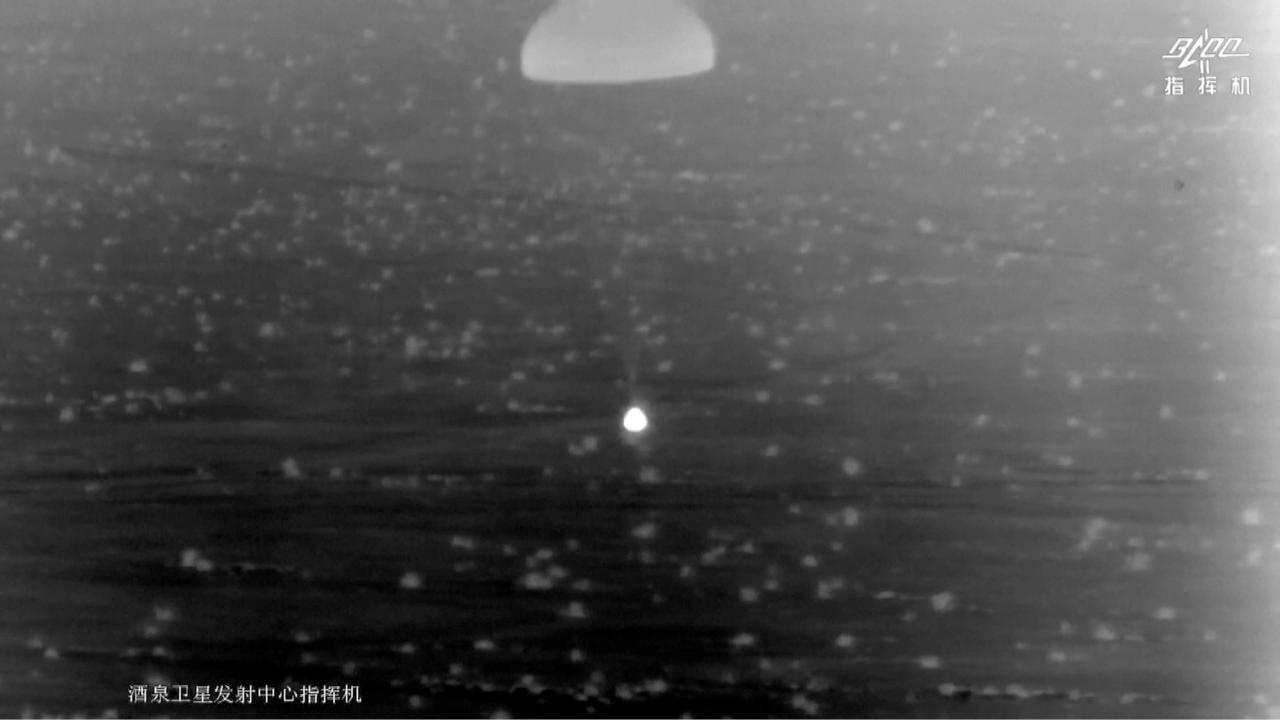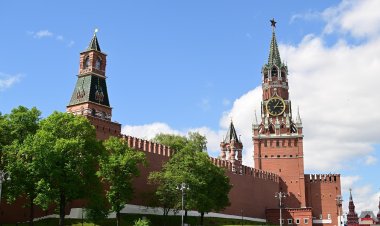After 192-day journey in space, China's Shenzhou-18 crew lands back on Earth
China's Shenzhou-18 astronauts, Ye Guangfu, Li Cong, and Li Guangsu, safely returned to Earth on Monday, marking the end of their six-month mission aboard the China Space Station.

The return capsule landed at the Dongfeng landing site in north China's Inner Mongolia Autonomous Region at 1:24 a.m. By 2:15 a.m., all three crew members had exited the capsule, and reports confirm they are in good health.
The China Manned Space Agency announced that the Shenzhou-18 manned mission was a complete success.
Ye, the mission's commander and a veteran of China's Shenzhou-13 mission, achieved a milestone as the first taikonaut to accumulate more than a year in space, establishing a new record for the longest cumulative time spent in orbit by a taikonaut.
After emerging from the return capsule, Ye expressed his admiration for the rapid advancements in China's space program. "I believe that a new record of time spent in orbit by Chinese astronauts will soon be set," he stated.
For Li Cong, the Shenzhou-18 mission marked his first space flight. He emphasized the crew's teamwork and smooth collaboration with the ground team, which facilitated two successful extravehicular activities (EVAs) and allowed their in-orbit scientific experiments to progress without issues. "The exploration of space is limitless," Li remarked, expressing his eagerness to return to space in the future.
Li Guangsu, also completing his inaugural mission with Shenzhou-18, shared his sense of awe about the weightlessness experienced in the vast and beautiful space. He mentioned that returning to Earth brings a mix of excitement and nostalgia for leaving space behind. "The biggest feeling at this moment is to feel proud of my great motherland," Li said after exiting the capsule.
During their 192 days in orbit, the Shenzhou-18 manned spacecraft, launched on April 25, conducted fast automated rendezvous and docked with the space station combination.
The three taikonauts completed numerous tasks during their stay, including two EVAs. Their first EVA set a record for the longest single spacewalk by taikonauts, lasting around 8.5 hours. They also installed space debris protection devices, managed several outbound cargo delivery missions, and performed maintenance and repair tasks for equipment both inside and outside the space station.
Alongside the ground crew, the taikonauts conducted extensive scientific experiments in areas such as microgravity physics, space material science, space life science, space medicine, and space technology. One notable achievement was the establishment of an "aquarium" for raising zebrafish in a microgravity environment, marking China's first effort in aquatic ecological research in orbit. This experiment aimed to observe the effects of the space environment on fish growth, revealing some abnormal swimming behaviors under microgravity conditions. Additionally, it contributed to insights into material cycling within closed ecological systems in space.
Moreover, the crew undertook plant cultivation experiments to investigate changes in plant stem cell functionality and gene expression in microgravity, which could facilitate the development of crops suitable for outer space conditions.
Read more: China Space Mission: A look back at Shenzhou-18 crew's journey.
Ian Smith for TROIB News
Discover more Science and Technology news updates in TROIB Sci-Tech












